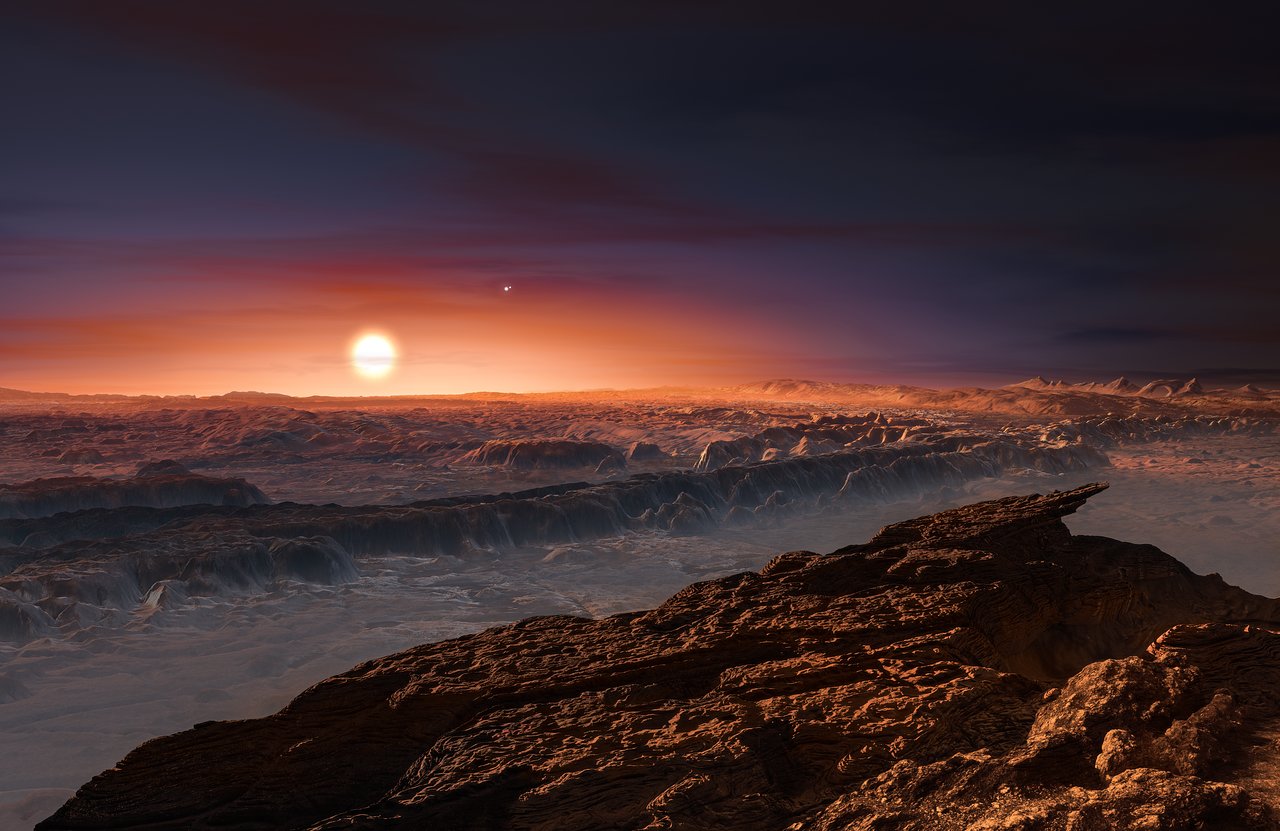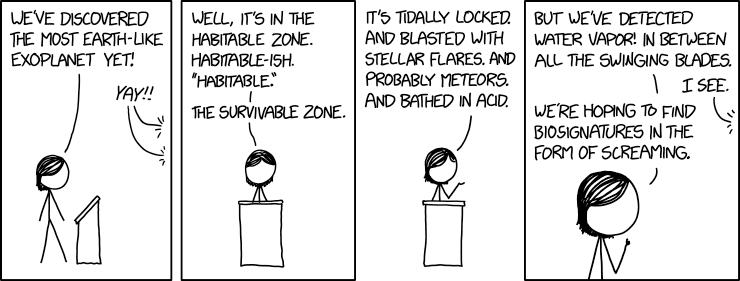Let us be quite clear about the semantics here. In the absence of any clear cut definition, we must examine the term carefully.
There is room for
discretion here, so
personal opinion can result in strong preference.
The difficulty is that there is room between
totally like Earth, and
a bit like Earth.
On the side of
totally like Earth, strict adherence would be undesirable. Not even the strictest adherent is going to insist on same diameter to within 0.001% - likewise temperature or atmospheric pressure. Such correspondence is clearly impossible because of latitude, height above sea level and topographical features; unless Earthlike means
identical, which it should not.
Totally Earthlike would have to include not only the presence of bacteria (or similar) but the presence of intelligent life with one head and four limbs. It is obviously ridiculous to insist on such identical forms, so a compromise must be struck. Possibly the presence of any life form - animal, vegetable or mineral - would be an acceptable guide.
At the other end of the scale, we must clearly avoid oversimplification. Whilst it is theoretically correct to say that an exoplanet is Earthlike if it is of similar size, but orbiting a totally unsuitable star, it is NOT going to be sufficiently Earthlike to please most people.
So even those with a relaxed view of what Earthlike means should exercise discretion. Generally, we probably find ourselves using the word Earthlike in the context of the possibility of life on exoplanets. Here, I feel that we should lean towards the definition of Earthlike which seeks evidence of extra terrestrial life. Otherwise there will be such a gap between debaters as to preclude sensible discussion.
The remaining question, therefore, is whether our definition must include evidence of life (on the exoplanet) or whether we are satisfied that conditions are sufficiently Earthlike (in a strict sense) to form a judgment that evidence of life should be found on searching.
There remains the historical perspective. How do we define a dead exoplanet with evidence of extinct life forms?. By definition, the exoplanet
could have been Earthlike, but
is no longer. Therefore a planet may now be dead but was Earthlike in the past. Such nomenclature might apply in our own Solar System, looking at Venus and Mars. Maybe moons of the outer planets will become Earthlike in the future. Why should a moon not be Earthlike? Orbiting a gas giant instead of a star strictly rules it out. But, wait a moment, Jupiter could have become a star under different circumstances.
Venus raises a particular problem. Whilst Earthlike in some respects (size, distance from Sun, etcetera) conditions on the surface seem to preclude almost all forms of life. But life may well be possible a few tens of miles up in the atmosphere. Resistance to sulphuric acid should not be that much of a problem, as we know here on Earth that life can be very determined to survive and propogate (just look at humans). So may Venus become Earthlike again? Or has it ever stopped being Earthlike.
I hope this little exegesis may provoke some thought, and help to heal any differences of the 'yes, it is' 'no, it isn't' variety. A little attention to semantics will help us all.
Cat






